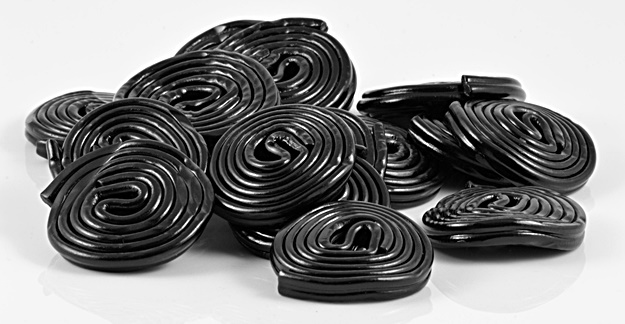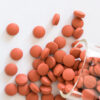During this Halloween season, the FDA is reminding people that candy can have side effects too. They’re looking at you, black licorice lovers.
According to the agency, eating just 2 ounces of black licorice a day for at least 2 weeks could cause you to end up in the hospital with an irregular heart rhythm (arrhythmia), particularly if you’re 40 or older.
This root contains glycyrrhizin, the sweetening compound derived from licorice root, which can cause potassium levels in the body to fall. Once those levels decline, some people can experience abnormal heart rhythms, high blood pressure, swelling, lethargy and congestive heart failure.
However, if you’re eating this in conventional candy form, you likely have very little to worry about. According to the FDA, anise oil, which has a similar taste and smell, is used in many popular candies to mimic licorice flavor. Even candies that do have licorice extract fall far below levels the FDA considers dangerous.
As with most foods, moderation is key for maintaining a healthy body. Whether as candy or in it’s natural root form, too much of black licorice can bring about unwanted side effects. By limiting your intake, you can protect yourself against unwanted ailments. Additionally, FDA’s Linda Katz, M.D., M.P.H. says potassium levels are usually restored once consumption of the root stops, with no permanent health problems.
The FDA offers the following suggestions if black licorice is your guilty pleasure:
- Regardless of your age, avoid eating large amounts of black licorice at one time.
- If you have consumed a lot and have an irregular heart rhythm or muscle weakness, stop eating it immediately and contact your doctor.
- Black licorice can interact with some medications, herbs and dietary supplements. Be sure to contact your doctor if you have questions regarding possible drug interactions.







